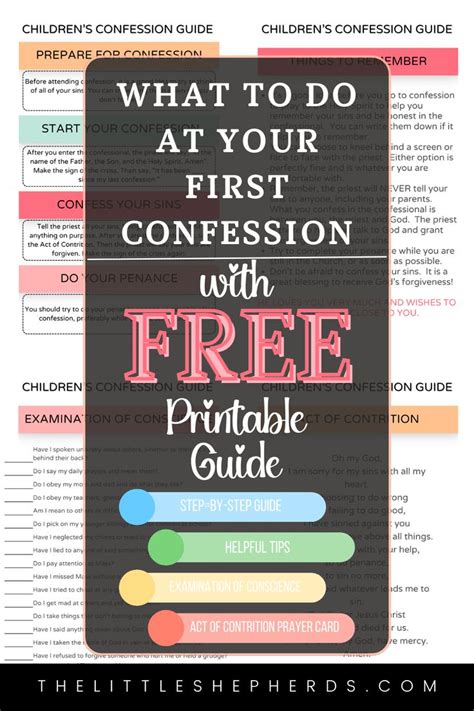Alright, let’s be real. Few things feel as heavy as something left unsaid, or as daunting as needing to say something deeply personal or difficult. Whether it's an apology, a hidden feeling, or a truth you've been holding onto, the thought of confessing can churn your stomach. Trust me, I've been there. I once spent days agonising over how to confess a minor mistake to a friend, only to botch it because I hadn't thought it through. That's why I learned the hard way that a little preparation goes a long way.
This isn't just about getting something off your chest; it's about communicating with clarity, sincerity, and respect for yourself and the other person. That's where a printable confession guide comes in. Think of it as your emotional roadmap, helping you navigate those tricky conversations with confidence and a clear head.
Why a Printable Confession Guide is Your Secret Weapon for Sincere Communication
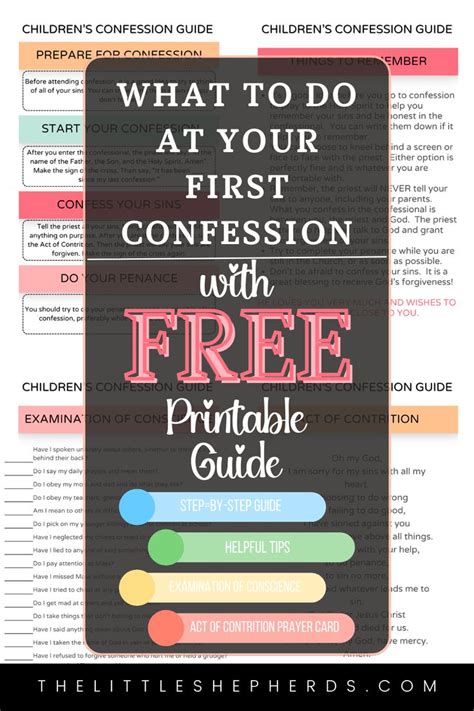
Ever feel like your thoughts scatter when the pressure's on? A structured approach, like a printable confession guide, helps you organize those swirling emotions and articulate exactly what you mean. It’s not about finding the perfect words from a script, but about creating a personal blueprint that ensures your message is heard, understood, and truly impactful. This guide will walk you through different types of confessions, offering examples and actionable advice, so you can approach your moment of truth with genuine confidence and embrace honest communication.
Navigating the Emotional Landscape: Categories of Confessions
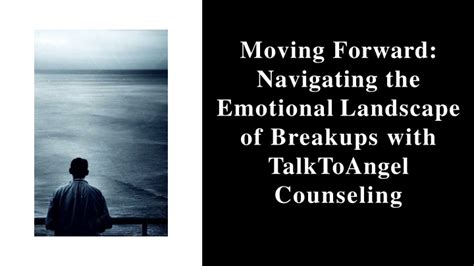
Confessions aren't one-size-fits-all. They come in many forms, each requiring a slightly different touch. Below, we’ve categorized common confession scenarios to help you find your footing and draft a message that resonates. This isn't just about spilling the beans; it's about thoughtful, intentional communication and the journey towards healing or connection.
Confession Category 1: The Heartfelt Apology & Reconciliation Guide
This is for when you've messed up, big or small, and need to genuinely apologize and work towards mending a relationship. The goal here is not just saying "I'm sorry," but demonstrating understanding of your impact and a commitment to doing better.
- "I’m so deeply sorry for [specific action]. I understand how that must have made you feel, and I regret causing you pain. I’m committed to learning from this and making things right."
- "My actions around [situation] were thoughtless, and I apologize sincerely. I value our relationship and hope we can talk through this when you’re ready."
- "It’s been weighing on me that I [describe mistake]. I was wrong, and I take full responsibility. What can I do to earn back your trust?"
- "Please forgive me for [specific offense]. My intention was never to hurt you, and I promise to be more mindful in the future."
- "I realized I really let you down by [action]. There's no excuse, and I deeply regret it. I've been in a similar spot before, using this kind of straightforward honesty to repair a key friendship."
- "I regret how I handled [situation]. I should have [what you should have done]. I hope we can move past this."
- "I want to express my profound regret for [specific incident]. It was out of line, and I understand if you need space. I’m here to listen."
Confession Category 2: Revealing Undisclosed Feelings & Affection
Sometimes, a confession is about opening your heart and sharing deep feelings – be it love, appreciation, or admiration. This requires vulnerability and courage, but the payoff can be immense.
- "I've realized I have strong feelings for you that go beyond friendship. I wanted to be honest about them, no pressure, just letting you know."
- "Spending time with you has made me see things differently. I find myself falling for you, and I wanted to bravely tell you."
- "You bring so much light into my life, and I just had to tell you how much I admire and care for you."
- "I’ve been holding onto this for a while, but I truly value you more than words can say, and I'd love to explore where these feelings could lead."
- "Every time we [shared activity], I feel a connection I haven't experienced before. I wanted to confess that you mean a lot more to me than you might think."
- "Just wanted to be honest: you’ve captured my attention and my heart in a way no one else has."
- "I’ve spent so long wondering how to say this, but I truly cherish you, and I wanted to be upfront about my deeper feelings."
Confession Category 3: Unburdening a Secret or Past Mistake
These confessions are often about clearing your conscience, revealing a truth that might impact others, or simply letting go of a burden. This category requires bravery and a willingness to face the consequences, whatever they may be.
- "There's something I need to get off my chest that has been weighing heavily on me: [briefly state the secret/mistake]. I regret not telling you sooner."
- "I need to confess that [specific past mistake/secret] happened. I know this might change things, but I felt it was important for you to know the truth."
- "For a while now, I’ve been keeping [the secret] from you. It wasn’t fair, and I deeply apologize for my lack of honesty."
- "This is difficult to say, but I was involved in [situation/action] and I concealed it. I'm ready to discuss it openly and face the consequences."
- "I’ve been carrying a secret about [general topic], and it's time to be transparent. I hope you can understand, even if it's hard." (My friend used this approach to finally admit they broke a prized possession years ago; it was tough, but healing.)
- "I need to confess a past mistake: [briefly explain]. It was wrong, and I'm ready to own up to it."
- "There’s a truth I need to share about [topic]. I hope you can hear me out and understand why I'm choosing to reveal it now."
Confession Category 4: The 'It's Not You, It's Me' Confession
Sometimes, a confession is about acknowledging your own struggles, limitations, or feelings that impact a relationship, even if no direct "wrongdoing" occurred. This is about personal vulnerability and self-awareness, crucial for a truly effective printable confession guide.
- "I need to confess that I've been struggling with [personal issue/feeling], and it's been impacting our [relationship/dynamic]. I'm working on it."
- "I realize I haven't been as present/supportive lately, and I need to confess that I'm dealing with a lot internally. It's not about you, it's me."
- "I wanted to be honest about my own fears/insecurities regarding [situation], which is why I've been [action]."
- "I need to confess that my energy levels have been really low, and it’s why I’ve been distant. I’m trying to manage it better."
- "I’ve been feeling overwhelmed and need to confess that I might need more space/support than I’ve been asking for. This isn't a reflection of you; it's my capacity right now." (I’ve personally found this kind of honest communication vital when managing high-stress periods, using it to explain my withdrawal.)
- "I wanted to confess that I’m feeling [emotion] about [topic], and it’s been influencing my behavior. I hope we can talk about it."
- "I have to confess that I'm finding it hard to [task/commitment] right now due to [reason]. I'm working on finding a solution."
Confession Category 5: The "Lighthearted Slip-Up" Confession
Not all confessions are heavy! Sometimes, it's about admitting to a minor, humorous transgression or a silly secret. This category is for building connection through shared laughter and honesty about small quirks.
- "Okay, I confess: I ate the last slice of pizza last night. It was delicious, and I have no regrets (mostly)."
- "Full disclosure: I may have accidentally (on purpose) swapped your sugar for salt in your morning coffee yesterday. Purely for scientific research!"
- "I have to admit, I once spent an entire afternoon trying to teach my cat to play fetch. It didn't work, but it was hilarious."
- "Confession time: I've been secretly binge-watching that reality show you make fun of. And I love it."
- "I need to confess something truly shocking: I sometimes sing really loudly and off-key in the shower. (Don't tell anyone!)" (This is my go-to "break the ice" confession when I want to show I don't take myself too seriously.)
- "Alright, I’ll fess up: I was the one who hid all the pens in the office. They're in the third drawer down. Sorry, not sorry!"
- "My deepest confession: I still believe socks get eaten by the washing machine. Where else do they go?"
Tips for Personalizing Your Printable Confession Guide Message
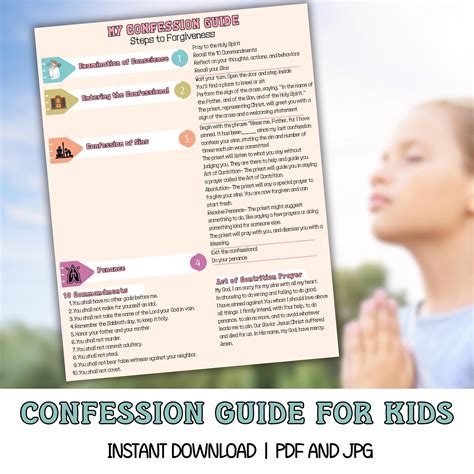
A printable confession guide provides the framework, but your unique voice brings it to life. Here's how to make your confession truly *yours*, ensuring it feels authentic and heartfelt, and boosts the effectiveness of your message.
- Mention Specific Details: Instead of "I'm sorry for everything," say "I'm truly sorry for missing your graduation; I know how much that meant to you." Specificity shows you’ve thought about the impact.
- Use "I" Statements: Focus on your feelings and actions ("I felt," "I did") rather than blaming ("You made me feel"). This fosters constructive dialogue and promotes effective communication.
- Connect to Shared Memories (if applicable): If you're confessing to someone with whom you share a history, a brief mention of a positive shared memory can reinforce the value of the relationship. "Remember when we [shared memory]? That’s how much I value what we have, and why I feel awful about [mistake]."
- State Your Intention: Clearly articulate *why* you are confessing. Is it for forgiveness? To clear the air? To be honest? "My intention in telling you this is to be completely honest and hope for a path towards healing."
- My Personal Preference: I find that starting with acknowledging the difficulty of the conversation, even a quick "This is hard for me to say," instantly sets an empathetic tone and invites the other person to be more receptive. It just works best for me when the stakes are high.
- Offer Solutions or Next Steps: If it's an apology, what will you do differently? If it's a feeling, what are you hoping for? "I'm committed to [specific action]" or "I hope we can talk more about what this means for us."
- Keep it Concise but Complete: Don't ramble, but ensure all key points are covered. Your printable confession guide helps here by prompting you to cover necessary ground.
Common Pitfalls: What to AVOID When Using Your Printable Confession Guide
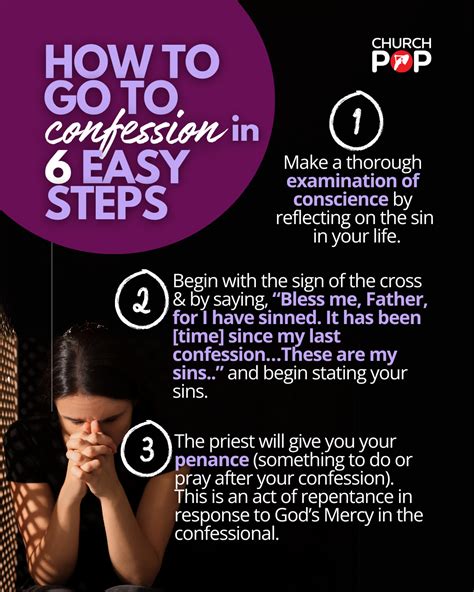
Even with the best intentions and a great printable confession guide, there are some common traps to steer clear of. Avoid these to ensure your confession lands the way you intend, fostering connection rather than further distance.
- The "But" Apology: "I'm sorry, *but* you made me do it." This negates your apology and shifts blame. Own your part, fully.
- Being Vague or Generic: Don't just say "I'm sorry if I offended you." Pinpoint the specific action. Vague apologies feel insincere and unthoughtful, almost like you're trying to get out of it easily.
- Expecting Immediate Forgiveness/Response: People need time to process. Your job is to confess sincerely; their job is to react in their own time. Don't push for an immediate resolution.
- Minimizing the Impact: Never say, "It wasn't a big deal," if it was to them. Validate their feelings, even if you don't fully understand them.
- Over-Explaining/Justifying: While context is good, don't get lost in lengthy explanations that sound like excuses. Be clear, concise, and direct.
- Confessing for Attention: A true confession is about honesty and healing, not drama or sympathy. Ensure your motivation is pure. Don't be like me and accidentally make it sound like a performance in a clutch moment – keep it authentic!
- Using a Confession as a Manipulation Tactic: A confession should never be used to guilt-trip someone, regain control, or force a particular outcome. It's about honesty and vulnerability.
Conclusion

Armed with this printable confession guide, you’re no longer just hoping for the best; you're equipped to communicate your truth with thoughtfulness and empathy. Remember, the goal isn't perfection, but sincerity. Whether it's a deep apology, a brave declaration of feeling, or simply sharing a hidden truth, approaching these moments with structure and heart can lead to incredible growth and deeper connections. So, take a deep breath, prepare your thoughts, and go make your truth heard. The world needs more honest, heartfelt conversations, and you’re now ready to lead one.
